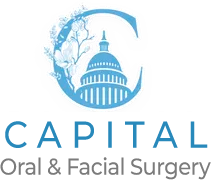Temporomandibular joint (TMJ) disorders affect millions of Americans each year, causing varying levels of discomfort and impacting daily life. The temporomandibular joint is a complex joint connecting the jaw to the skull, allowing movements needed for speaking, chewing, and yawning. When this system is disrupted, it can lead to chronic pain, jaw dysfunction, and even diminished quality of life. At Capital Oral & Facial Surgery Center, our knowledgeable team, led by Dr. Virginia E. Lee, specializes in the diagnosis and treatment of TMJ disorders. Our focus is on alleviating pain and restoring normal function to the jaw joint, improving our patients' overall well-being and comfort.
In this comprehensive guide, we will explore the causes and symptoms of TMJ disorders, the diagnostic process, and the various treatment options available. Our goal is to inform and empower readers to recognize the signs of TMJ disorders and understand the range of treatments to effectively address this often-debilitating condition.
Capital Oral & Facial Surgery Center proudly serves Washington, D.C., metropolitan area and surrounding states, offering top-quality TMJ disorder diagnosis and treatment. If you or a loved one suspects TMJ dysfunction or requires professional care for an existing condition, do not hesitate to contact our dedicated and compassionate team today. Together, we will work towards restoring proper jaw function and improving your overall oral health, comfort, and wellness.
Causes of TMJ Disorders – Unraveling the Underlying Factors
Although the precise cause of TMJ disorders can sometimes be elusive, several factors are known to contribute to the development of this condition. Identifying and addressing these factors is essential for effective management and treatment. Common causes of TMJ disorders include:
1. Arthritis: Osteoarthritis or rheumatoid arthritis in the temporomandibular joint can lead to inflammation, pain, and reduced mobility.
2. Jaw Trauma: Accidents that cause a forceful blow to the jaw or facial region can damage the joint, leading to TMJ dysfunction.
3. Bruxism: Chronic teeth grinding or clenching during sleep may stress the jaw muscles and joint, resulting in TMJ-related pain.
4. Structural Abnormalities: Congenital or developmental abnormalities of the jaw, skull, or teeth can predispose individuals to TMJ disorders.
5. Poor Posture: Neck and spine misalignment, often caused by poor posture, can result in muscle imbalances and strain, contributing to jaw joint dysfunction.
Identifying the underlying cause of a TMJ disorder is paramount for determining the most appropriate and effective treatment plan.
Symptoms of TMJ Disorders – Recognizing the Warning Signs
The symptoms of TMJ disorders are highly varied, ranging from mild discomfort to severe dysfunction, and may manifest in multiple ways. Key indicators of TMJ disorders include:
1. Pain and Tenderness: Pain or tenderness around the jaw, temporomandibular joint, ears, or face can indicate a potential TMJ disorder.
2. Restricted Mobility: Difficulty opening or closing the jaw, or experiencing a "locked" jaw, may suggest the presence of a TMJ disorder.
3. Clicking or Popping Sounds: Audible clicking, popping, or grinding sounds when moving the jaw, often accompanied by discomfort, can be a sign of a TMJ disorder.
4. Headaches: Frequent headaches, particularly in the mornings, may be attributed to jaw joint dysfunction.
5. Chewing Difficulties: Discomfort while chewing, or the presence of an abnormal bite, can point towards a potential TMJ disorder.
If you or a loved one experiences these symptoms, a thorough evaluation by an oral and maxillofacial professional is crucial to assess for TMJ disorders and obtain the appropriate treatment.
Diagnosing TMJ Disorders – The Evaluation Process
Evaluation for TMJ disorders typically involves a multi-step process, including:
1. Physical Examination: The oral surgeon examines the jaw, teeth, and facial muscles, noting any signs of tenderness, swelling, or misalignment.
2. Range of Motion Assessment: The patient's jaw mobility, including maximum opening, closing, and lateral movements, is assessed to determine the degree of impairment.
3. Joint and Muscle Palpation: The doctor applies gentle pressure to the joint and surrounding muscles, identifying any areas of discomfort or irregularities.
4. Imaging Studies: X-rays, CT scans, or MRI may be employed to obtain detailed images of the joint, revealing any structural abnormalities, inflammation, or degeneration.
5. Differential Diagnosis: The oral surgeon considers other potential sources of the patient's symptoms, such as toothaches, sinus problems, or trigeminal neuralgia, to determine the most accurate diagnosis.
Treatment Options for TMJ Disorders – Tailoring the Approach
Various treatment methods are available for TMJ disorders, ranging from conservative measures to surgical interventions. The most suitable treatment plan is tailored to the patient's particular needs and the severity of their condition. Options may include:
1. Self-Care Practices: At-home remedies, such as applying ice packs, eating soft foods, and avoiding excessive jaw movement, can provide relief from mild TMJ-related discomfort.
2. Physical Therapy: Strengthening exercises, massage techniques, and stretching routines, guided by a physical therapist, can help improve jaw function and reduce pain.
3. Oral Appliances: Custom-made mouthguards or splints, worn during sleep, can alleviate grinding and clenching habits that contribute to TMJ discomfort.
4. Medications: Analgesics, anti-inflammatories, or muscle relaxants may be prescribed to manage pain, reduce inflammation, or relax tense jaw muscles.
5. Surgical Interventions: In severe cases or when conservative treatments prove ineffective, surgical options such as arthroscopy, arthrocentesis, or open-joint surgery may be considered to address the underlying issue directly.
Conclusion
TMJ disorders can significantly impact an individual's quality of life, causing pain, dysfunction, and even emotional distress. At Capital Oral & Facial Surgery Center, our team of skilled maxillofacial doctors in Washington, DC is dedicated to diagnosing, managing, and treating TMJ disorders, restoring proper jaw function and enhancing your overall comfort and well-being. If you suspect that you or a loved one has a TMJ disorder, do not hesitate to reach out to our compassionate and experienced team. We are here to guide you through the assessment, treatment, and recovery process, ensuring that you receive the highest level of care and support on your journey to optimal oral health.


